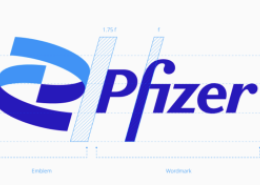Pfizer Reports Top Line Results from a Phase 3 Study Evaluating Desvenlafaxine Succinate Sustained-Release Formulation in Pediatric Patients with Major Depressive Disorder
Pfizer Inc (NYSE: PFE) announced the top line results from a Phase 3 study which evaluated the efficacy, safety, and tolerability of Pristiq® (desvenlafaxine succinate sustained-release formulation) in pediatric patients ages 7 to 17 with Major Depressive Disorder (MDD).
The study did not meet its primary objective to demonstrate superior efficacy of desvenlafaxine succinate sustained-release formulation compared to placebo.
This is the first completed study of four Phase 3 pediatric trials being conducted as part of an FDA post-marketing commitment under the Pediatric Research Equity Act (PREA).
About the Study
The study was a randomized, double-blind, placebo-controlled, fluoxetine-referenced study designed to evaluate the efficacy, safety, and tolerability of desvenlafaxine succinate sustained-release formulation in pediatric outpatients ages 7 to 17 with MDD. A total of 340 subjects were randomized. The patient population was comprised of 38.3 percent children (7-11 years of age) and 61.7 percent adolescents (12-17 years of age). This study included three treatment arms: desvenlafaxine succinate sustained-release formulation (weight-based dosing to achieve pediatric exposures approximating exposures in adults receiving 35 mg/day), fluoxetine (20 mg/day), and placebo.
Efficacy results indicate that both desvenlafaxine succinate sustained-release formulation and the positive control, fluoxetine, were not statistically significantly different from placebo.
There were no new safety signals identified. Adverse events occurring after the start of treatment in the desvenlafaxine succinate sustained-release formulation group were generally consistent with those observed in both the Phase 2a pediatric MDD safety studies and the studies of desvenlafaxine succinate sustained-release formulation-treated adults with MDD.
Full results from the study will be submitted for publication.
About PRISTIQ
PRISTIQ, a selective serotonin and norepinephrine reuptake inhibitor (SNRI), is a prescription medication that was approved by the U.S. Food and Drug Administration (FDA) in 2008 for the treatment of MDD in adults. The recommended dose for PRISTIQ is 50 mg once daily, with or without food. In clinical studies, doses of 50-400 mg/day were shown to be effective, although no additional benefit was demonstrated at doses greater than 50 mg/day and adverse events and discontinuations were more frequent at higher doses.
Indication
PRISTIQ Extended-Release Tablets are indicated for the treatment of major depressive disorder in adults.
Important Safety Information for PRISTIQ
WARNING: SUICIDAL THOUGHTS AND BEHAVIORS Antidepressants increased the risk of suicidal thoughts and behavior in children, adolescents, and young adults in short-term studies. These studies did not show an increase in the risk of suicidal thoughts and behavior with antidepressant use in patients over age 24; there was a reduction in risk with antidepressant use in patients aged 65 and older.
In patients of all ages who are started on antidepressant therapy, monitor closely for worsening, and for emergence of suicidal thoughts and behaviors. Advise families and caregivers of the need for close observation and communication with the prescriber. PRISTIQ is not approved for use in pediatric patients.
Contraindications
• PRISTIQ is contraindicated in patients with a known hypersensitivity to PRISTIQ or venlafaxine. Angioedema has been reported in patients treated with PRISTIQ.
• Serotonin syndrome and MAOIs: Do not use MAOIs intended to treat psychiatric disorders with PRISTIQ or within 7 days of stopping treatment with PRISTIQ. Do not use PRISTIQ within 14 days of stopping an MAOI intended to treat psychiatric disorders. In addition, do not start PRISTIQ in a patient who is being treated with an MAOI such as linezolid or intravenous methylene blue.
Selected Warnings and Precautions
• All patients treated with antidepressants should be monitored appropriately and observed closely for clinical worsening, suicidality, and unusual changes in behavior, especially during the first few months of treatment and when changing the dose. Consider changing the therapeutic regimen, including possibly discontinuing the medication, in patients whose depression is persistently worse or includes symptoms of anxiety, agitation, panic attacks, insomnia, irritability, hostility, aggressiveness, impulsivity, akathisia, hypomania, mania, or suicidality that are severe, abrupt in onset, or were not part of the patient's presenting symptoms. Families and caregivers of patients being treated with antidepressants should be alerted about the need to monitor patients.
• The development of a potentially life-threatening serotonin syndrome has been reported with SSRIs and SNRIs, including with PRISTIQ, both when taken alone, but especially when co-administered with other serotonergic agents (including triptans, tricyclic antidepressants, fentanyl, lithium, tramadol, tryptophan, buspirone, and St. John's Wort) and with drugs that impair metabolism of serotonin (in particular, MAOIs, both those intended to treat psychiatric disorders and also others, such as linezolid and intravenous methylene blue). If such events occur, immediately discontinue PRISTIQ and any concomitant serotonergic agents, and initiate supportive treatment. If concomitant use of PRISTIQ with other serotonergic drugs is clinically warranted, patients should be made aware of a potential increased risk for serotonin syndrome, particularly during treatment initiation and dose increase.
• Patients receiving PRISTIQ should have regular monitoring of blood pressure, since increases in blood pressure were observed in clinical studies. Pre-existing hypertension should be controlled before starting PRISTIQ. Caution should be exercised in treating patients with pre-existing hypertension, cardiovascular or cerebrovascular conditions that might be compromised by increases in blood pressure. Cases of elevated blood pressure requiring immediate treatment have been reported. For patients who experience a sustained increase in blood pressure, either dose reduction or discontinuation should be considered.
• SSRIs and SNRIs, including PRISTIQ, may increase the risk of bleeding events. Concomitant use of aspirin, NSAIDs, warfarin, and other anticoagulants may add to this risk.
• The pupillary dilation that occurs following use of many antidepressant drugs including Pristiq may trigger an angle closure attack in a patient with anatomically narrow angles (Angle Closure Glaucoma) who does not have a patent iridectomy.
• PRISTIQ is not approved for use in bipolar depression. Prior to initiating treatment with an antidepressant, patients should be adequately screened to determine the risk of bipolar disorder.
• PRISTIQ should be used cautiously in patients with a history or family history of mania or hypomania or with a history of seizure disorder.
• On discontinuation, adverse events, some of which may be serious, have been reported with PRISTIQ and other SSRIs and SNRIs. Abrupt discontinuation of PRISTIQ has been associated with the appearance of new symptoms. Patients should be monitored for symptoms when discontinuing treatment. A gradual reduction in dose rather than abrupt cessation is recommended whenever possible.
• Hyponatremia may occur as a result of treatment with SSRIs and SNRIs, including PRISTIQ. Discontinuation of PRISTIQ should be considered in patients with symptomatic hyponatremia.
• Interstitial lung disease and eosinophilic pneumonia associated with venlafaxine (the parent drug of PRISTIQ) therapy have been rarely reported.
Adverse Reactions
• The most commonly observed adverse reactions in patients taking PRISTIQ vs placebo for MDD in short-term fixed-dose premarketing studies (incidence ≥5% and at least twice the rate of placebo in the 50-mg dose group) were nausea (22% vs 10%), dizziness (13% vs 5%), hyperhidrosis (10% vs 4%), constipation (9% vs 4%), and decreased appetite (5% vs 2%).
Full prescribing information and Medication Guide including BOXED WARNING, are available at www.PRISTIQ.com
Pfizer Inc.: Working together for a healthier world®
At Pfizer, we apply science and our global resources to bring therapies to people that extend and significantly improve their lives. We strive to set the standard for quality, safety and value in the discovery, development and manufacture of health care products. Our global portfolio includes medicines and vaccines as well as many of the world's best-known consumer health care products. Every day, Pfizer colleagues work across developed and emerging markets to advance wellness, prevention, treatments and cures that challenge the most feared diseases of our time. Consistent with our responsibility as one of the world's premier innovative biopharmaceutical companies, we collaborate with health care providers, governments and local communities to support and expand access to reliable, affordable health care around the world. For more than 150 years, Pfizer has worked to make a difference for all who rely on us. To learn more, please visit us at www.pfizer.com.
DISCLOSURE NOTICE: The information contained in this release is as of June 11, 2015. Pfizer assumes no obligation to update forward-looking statements contained in this release as the result of new information or future events or developments.
This release contains forward-looking information about desvenlafaxine succinate sustained-release formulation (DVS SR) (Pristiq®) that involves substantial risks and uncertainties that could cause actual results to differ materially from those expressed or implied by such statements. Risks and uncertainties include, among other things, the uncertainties inherent in research and development, including, without limitation, the possibility of unfavorable clinical trial results; and competitive developments.
A further description of risks and uncertainties can be found in Pfizer's Annual Report on Form 10-K for the fiscal year ended December 31, 2014 and in its subsequent reports on Form 10-Q, including in the sections thereof captioned "Risk Factors" and "Forward-Looking Information and Factors That May Affect Future Results," as well as in its subsequent reports on Form 8-K, all of which are filed with the SEC and available at www.sec.gov and www.pfizer.com.
MacKay Jimeson, 212-733-2324
[email protected]








